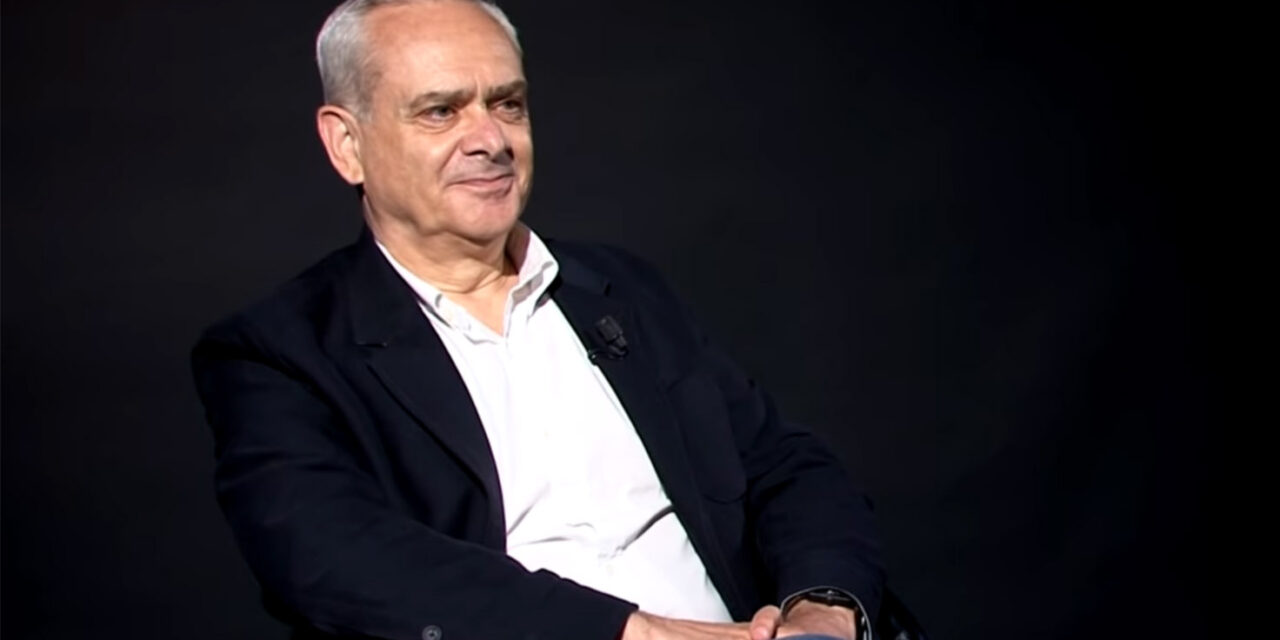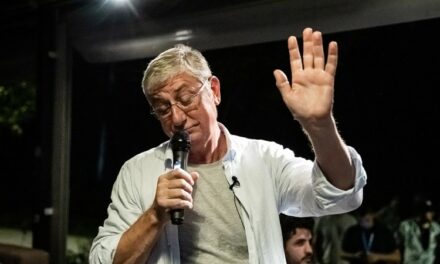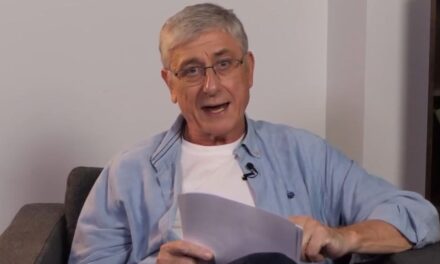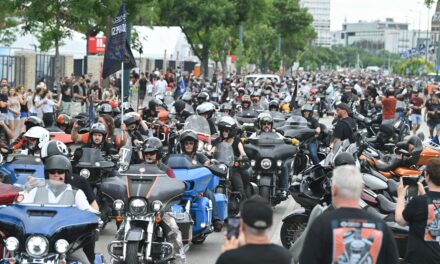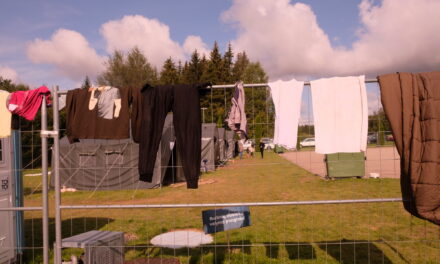Jacques Baud, an intelligence and security consultant and former NATO military analyst, warned of the dangers of the West's war narrative as early as 2022. His essay below was published by the French Intelligence Research Center.
For years, from Mali to Afghanistan, I worked for peace and risked my life for it. The main question is not the justification of the war, but the understanding of what led us there. I note that the alternating "experts" on television analyze the situation on the basis of dubious information, mostly on the basis of hypotheses disguised as facts, so we do not understand what is happening. This is how you can create panic. The problem is not so much who is right in this conflict, but how our leaders make their decisions.
Let's examine the roots of the conflict!
It all started with those who have been talking to us about "separatists" or the "independence" of Donbass for the past eight years. This is a mistake. The referendums of the two self-proclaimed republics, Donetsk and Luhansk, held in May 2014 were not "independence" referendums, as some unscrupulous journalists claimed, but "self-determination" or "autonomy".
The term "pro-Russian" implies that Russia was also a party to the conflict, which is not true, using the term "Russian speakers" would have been more fair. Moreover, the referendums were held against Vladimir Putin's advice.
In fact, these republics did not seek secession from Ukraine, but an autonomy statute that would guarantee them the use of Russian as an official language.
After all, the first legislative measure of the new government that was established with the overthrow of President Yanukovych was to repeal the 2012 Kivalov-Koleshchenko law, which made Russian the official language, on February 23, 2014. It's a bit like the putschists decided that French and Italian would no longer be official languages in Switzerland.
This decision caused outrage among the Russian-speaking population. All this led to a violent crackdown on the Russian-speaking regions (Odessa, Dnipropetrovsk, Kharkiv, Lugansk and Donetsk), which began in February 2014 and led to the militarization of the situation and some massacres; the most brutal occurred in Odessa and Mariupol.
By the end of the summer of 2014, only the self-proclaimed republics of Donetsk and Luhansk remained. At this stage, the overly rigid Ukrainian general staff failed to assert itself. An examination of the course of the 2014-2016 Donbas fighting shows that the Ukrainian General Staff systematically and mechanically applied the same operational plans. However, the war fought by the autonomists at that time was very close to what we could observe in the Sahel region: they were very mobile operations carried out with light equipment. With a more flexible and less doctrinaire approach, the insurgents were able to exploit the ineptitude of the Ukrainian forces to repeatedly "trap" them.
In 2014, I was working for NATO as a small arms counter-proliferation officer, and we were trying to investigate Russian arms shipments to the rebels to see if Moscow was involved. The information we receive at that time practically all comes from the Polish intelligence services and does not "match" the information from the OSCE:
despite the rather crude claims, we have not detected any Russian military arms and materiel shipments.
The arming of the rebels is due to the defections of the Russian-speaking Ukrainian units that have gone over to the side of the rebels. As the Ukrainian setbacks progressed, entire tank, artillery or anti-aircraft battalions swelled the autonomous ranks. This is what made the Ukrainians commit to the Minsk agreements.
But immediately after signing the Minsk 1 agreement, Ukrainian President Petro Poroshenko launched a massive anti-terrorist operation against the Donbass. Bis repetita placent : following the bad advice of NATO officers, the Ukrainians suffered a crushing defeat at Debaltsevo, which forced them to commit to the Minsk 2 agreements.
It must be emphasized here that the Minsk 1 (September 2014) and Minsk 2 (February 2015) agreements did not provide for the secession and independence of the republics, but for autonomy within the framework of Ukraine.
Anyone who has read the Agreements (very, very few) can see that Kiev and the representatives of the republics had to negotiate with each other about the status of the republics, in order to find an internal solution in Ukraine. That is why, since 2014, Russia has systematically demanded their use, while refusing to participate in the negotiations because it was Ukraine's internal matter.
On the other side, the West, led by France, systematically tried to replace the Minsk agreements with the "Normandy format", which brought the Russians and Ukrainians face to face. However, we must remember that February 23-24, 2022. before there were no Russian troops in the Donbass. Moreover, OSCE observers have never detected the slightest trace of Russian units operating in Donbass. Just as the US intelligence map published by the Washington Post on December 3, 2021 does not show Russian troops in Donbass.
In October 2015, Vasyl Hrychak, director of the Security Service of Ukraine (SBU), admitted that only 56 Russian fighters had been observed in the Donbass. This was comparable to the Swiss going to fight in Bosnia in the 1990s, or the French going to fight in Ukraine today. The Ukrainian army was in a deplorable state at the time. In October 2018, after four years of war, Ukrainian Military Prosecutor General Anatoly Matyos said that Ukraine had lost 2,700 people in the Donbass:
891 in illness, 318 in traffic accidents, 177 in other accidents, 175 in poisoning (alcohol, drugs), 172 in careless handling of weapons, 101 in violation of safety rules, 228 in murder and 615 in suicide.The army was actually undermined by the corruption of the cadres and they were not supported by the population.
The UK Home Office reports that when reservists were called up in spring 2014, 70 per cent did not show up for the first session, 80 per cent for the second, 90 per cent for the third and 95 per cent for the fourth.
In October/November 2017, 70 percent of those summoned did not appear during the recall campaign. This does not include suicides and desertions (often in favor of the autonomous), which reach 30 percent of the workforce in the ATO zone. Young Ukrainians were not willing to fight in the Donbass and prefer to emigrate, which at least partially explains the country's demographic deficit.
Ukraine's defense ministry then turned to NATO to help it make its armed forces more "attractive." Since I had already worked on similar projects within the framework of the UN, NATO asked me to participate in a program aimed at restoring the image of the Ukrainian armed forces. But this is a long process, and the Ukrainians want to move quickly. Thus, to compensate for the lack of soldiers, the Ukrainian government resorted to paramilitary militias. They essentially consist of foreign mercenaries, often far-right activists. According to Reuters, in 2020 they make up about 40 percent of Ukraine's armed forces and number around 102,000. The United States, Great Britain, Canada and France arm, finance and train them. They are of more than 19 nationalities - including Swiss.
Western countries therefore clearly created and supported the Ukrainian far-right militias.
In October 2021, the Jerusalem Post sounded the alarm by condemning the Centuria project. These militias have been operating in Donbass since 2014 with Western support. Even if we can argue about the term "Nazi", the fact remains that these militias are violent, convey a disgusting ideology, and are virulently anti-Semitic. Their anti-Semitism is more cultural than political, so the adjective "Nazi" is not necessarily appropriate. Their hatred of Jews stems from the great Ukrainian famines of the 1920s and 1930s, which stemmed from crops confiscated by Stalin to finance the modernization of the Red Army. However, this genocide - known in Ukraine as the Holodomor - was carried out by the NKVD (predecessor of the KGB), whose top leadership consisted largely of Jews. That is why Ukrainian extremists are asking Israel to apologize for the crimes of communism today, writes the Jerusalem Post. So we are far from Vladimir Putin "rewriting history".
These militias, which originate from the far-right groups that led the Euromajdan revolution in 2014, are made up of fanatical and brutal individuals. The most famous of them is the Azov Regiment, whose emblem resembles the 2nd SS Das Reich Panzer Division, which is the object of real respect in Ukraine, having liberated Kharkov from the Soviets in 1943, before committing the Oradour-sur-Glane massacre in France in 1944. i massacre. The integration of these paramilitary forces into the National Guard did not involve "denazification" at all, as some claim. Among the many examples, the insignia of the Azov regiment are the most telling. (…)
The West therefore continues to support and arm militias that have committed numerous crimes against the civilian population since 2014: rape, torture and massacres.
But while the Swiss government very quickly introduced sanctions against Russia, it did not accept anything against Ukraine, which has been massacring its own population since 2014.
Indeed, those who defend the rights of the people of Ukraine have long condemned the actions of these groups, but our governments have not followed suit.
Because we are not actually trying to help Ukraine, we are fighting against Russia.
Featured image: Twitter

